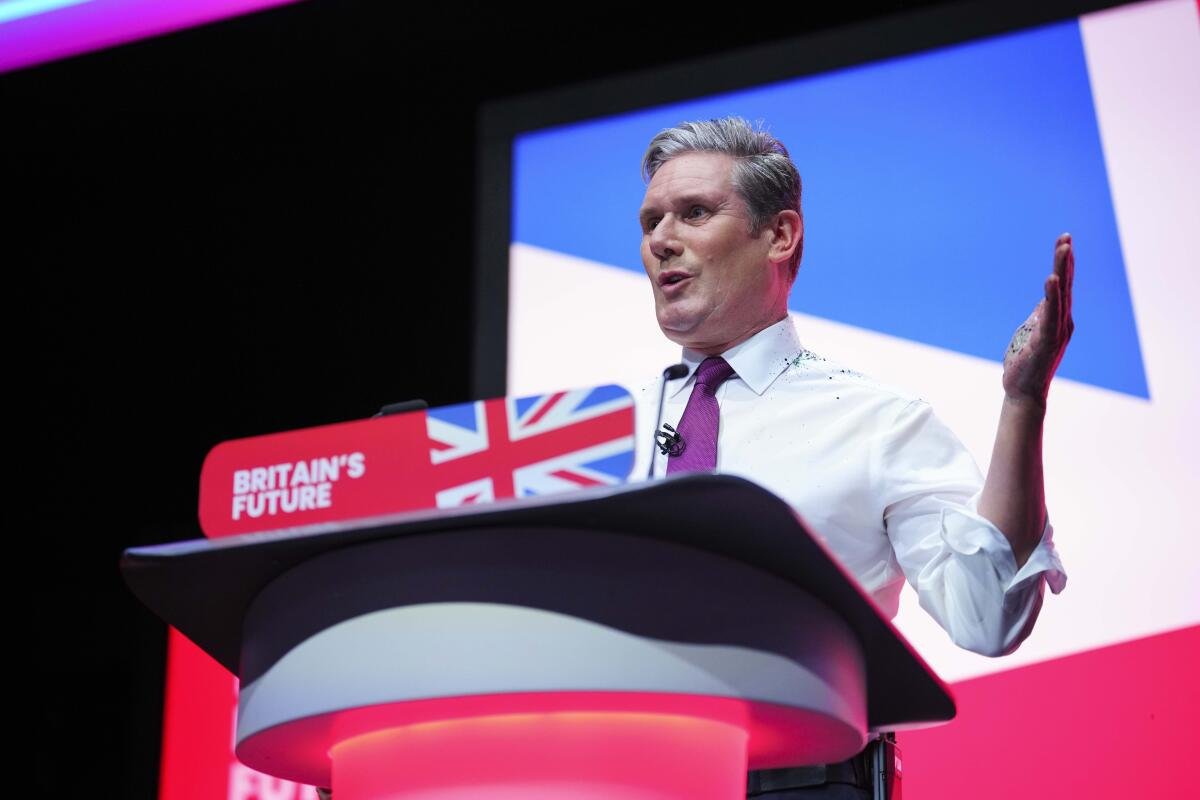
NEWS
Labour - ready for government (well, almost)
By Mike Craven, Chair
Labour ended its conference today in its most optimistic mood since 2005. At that conference, Tony Blair had just won his third election victory and Labour seemed invincible. Eighteen years, four election defeats and four leaders later, Labour MPs, delegates and supporters feel that at last they are on the verge of ousting the Conservatives at the election likely to come in the next 12 months.
They behaved accordingly. There was virtually no dissent, delegates dutifully applauded shadow ministers and Corbyn supporters banished to their own unnoticed fringe event in a repurposed church hall a mile from the convention centre.
Keir Starmer’s speech was strategically directed at dispelling doubts and projecting reassurance towards 2019 Conservative voters. It also prepared Labour not to expect sunny uplands any time soon. Buoyed by the failed stage invasion at the beginning of his speech, Starmer confidently delivered what was his best performance to date. He hit the right buttons for his target demographics on home ownership, promising to bulldoze planning regulations, reinforced his commitment to net zero and icily condemned Hamas.
The messages of the conference were echoed in every front bench speech. The Tories crashed the economy. The mess is so great it will take two terms of a Labour government to sort (thus anticipating his general election strategy in 2029). And we have the plans to transform Britain.
It is remarkable to reflect just how quickly Starmer has succeeded in transforming the Labour Party. Just four years ago, the delegates were cheering a Leader about to take Labour to its worst election defeat since the 1930s.
But it is precisely the speed of the transformation which reveals the potential weaknesses as Labour approaches government. They are prepared politically but contrast with the period in the run-up to the 1997 election victory. The key players then - Gordon Brown, John Prescott, Robin Cook, David Blunkett, Margaret Beckett and Harriet Harman, had been around for years, honing their political skills and developing detailed policies. Most of the current shadow cabinet have only been on the political front line for a couple of years. As a consequence, there are a lot of policy gaps which shadow ministers will need to think about before they meet Permanent Secretaries in the run-up to the election.
Business is keen to help which was underlined by the large number of companies and CEOs attending conference. Shadow ministers were very receptive to discussions and a lot of work is going on to flesh out policies in specific sectors. These need to crystallise in the next few months so that civil servants have a clear idea of ministerial expectations following the election.
Elections are rarely foregone conclusions especially when the number of seats Labour needs to win is so large. But last week’s Scottish by-election result strengthened the view that the 20 point lead in the polls may be firmer than some commentators have suggested. This week, Labour certainly behaved as the government in waiting.
Lexington’s expertise and public affairs team is grounded in years of advising the Labour Party at the most senior level. To find out more about how to engage with the Labour Party please contact Stephanie Lloyd, at stephanie.lloyd@lexcomm.co.uk









